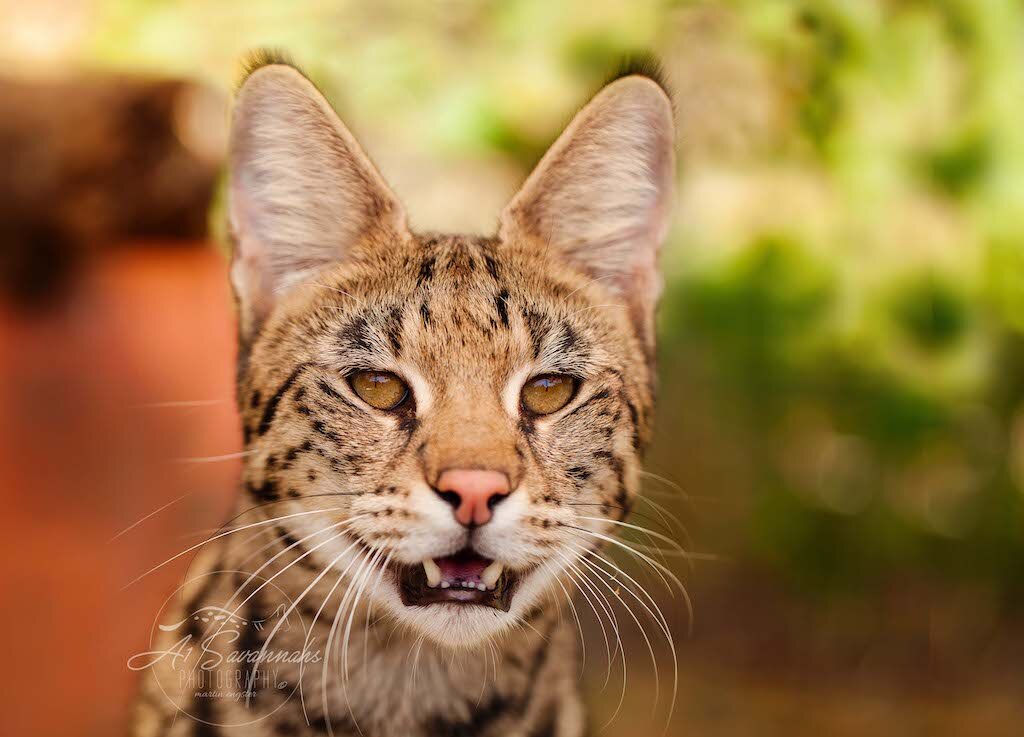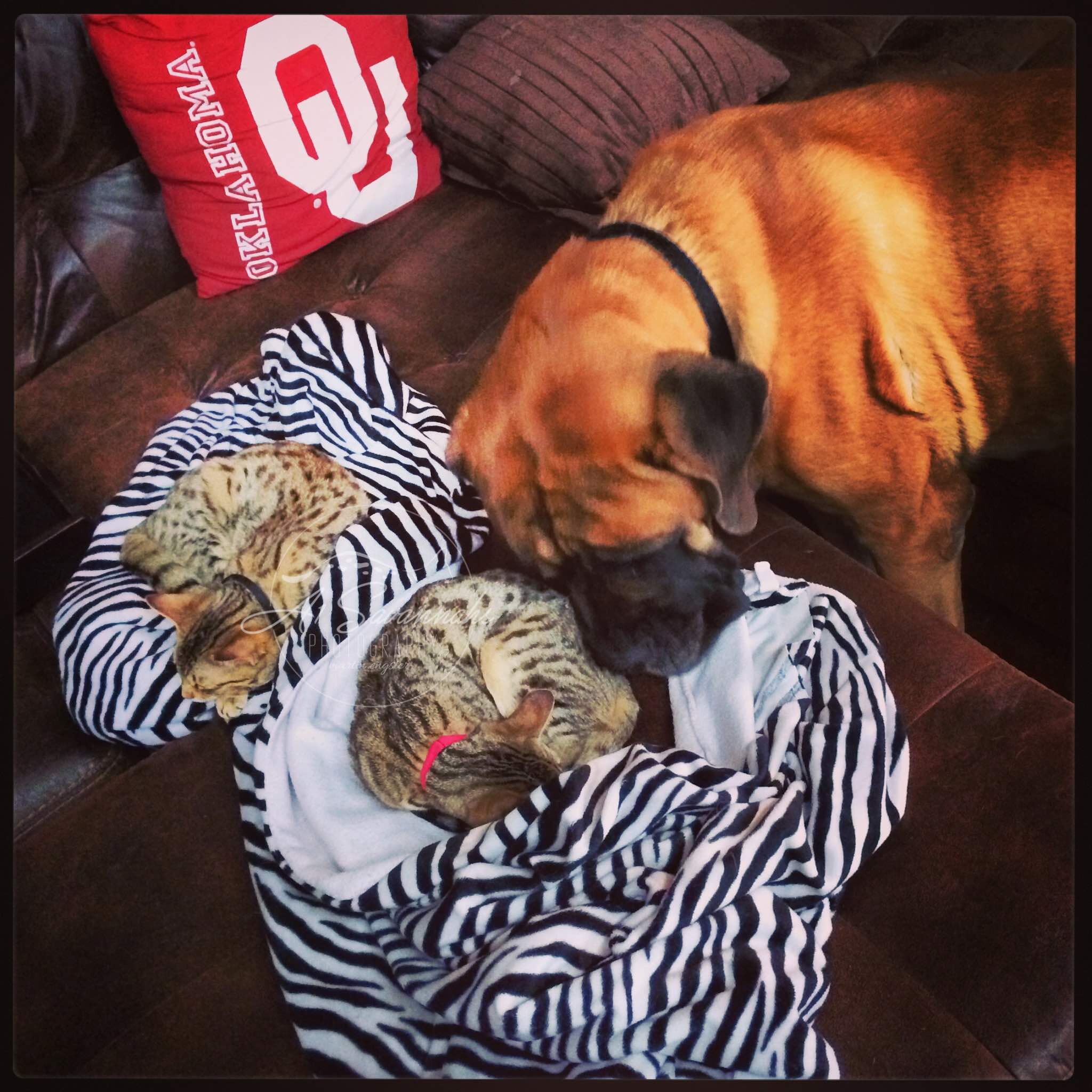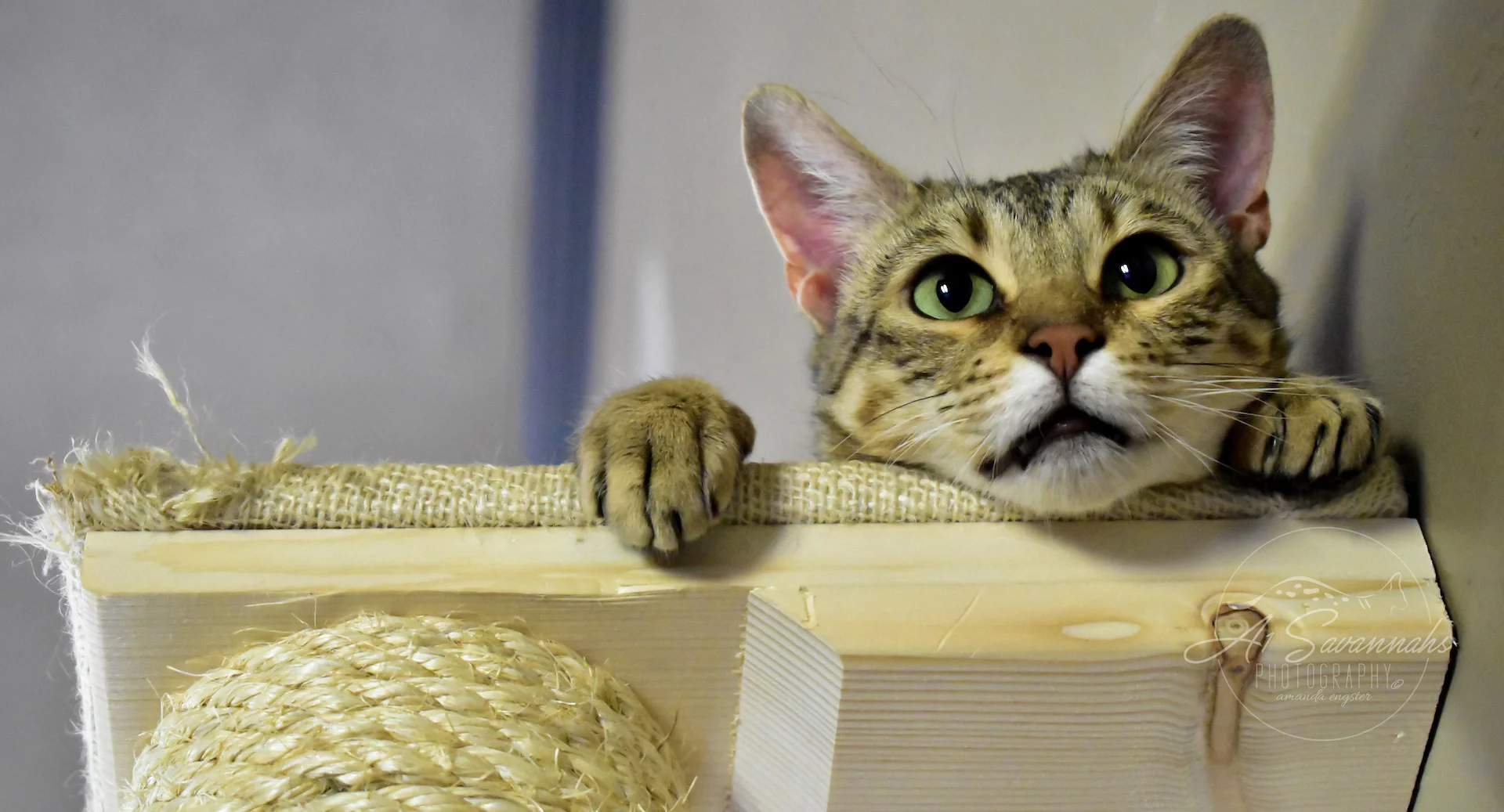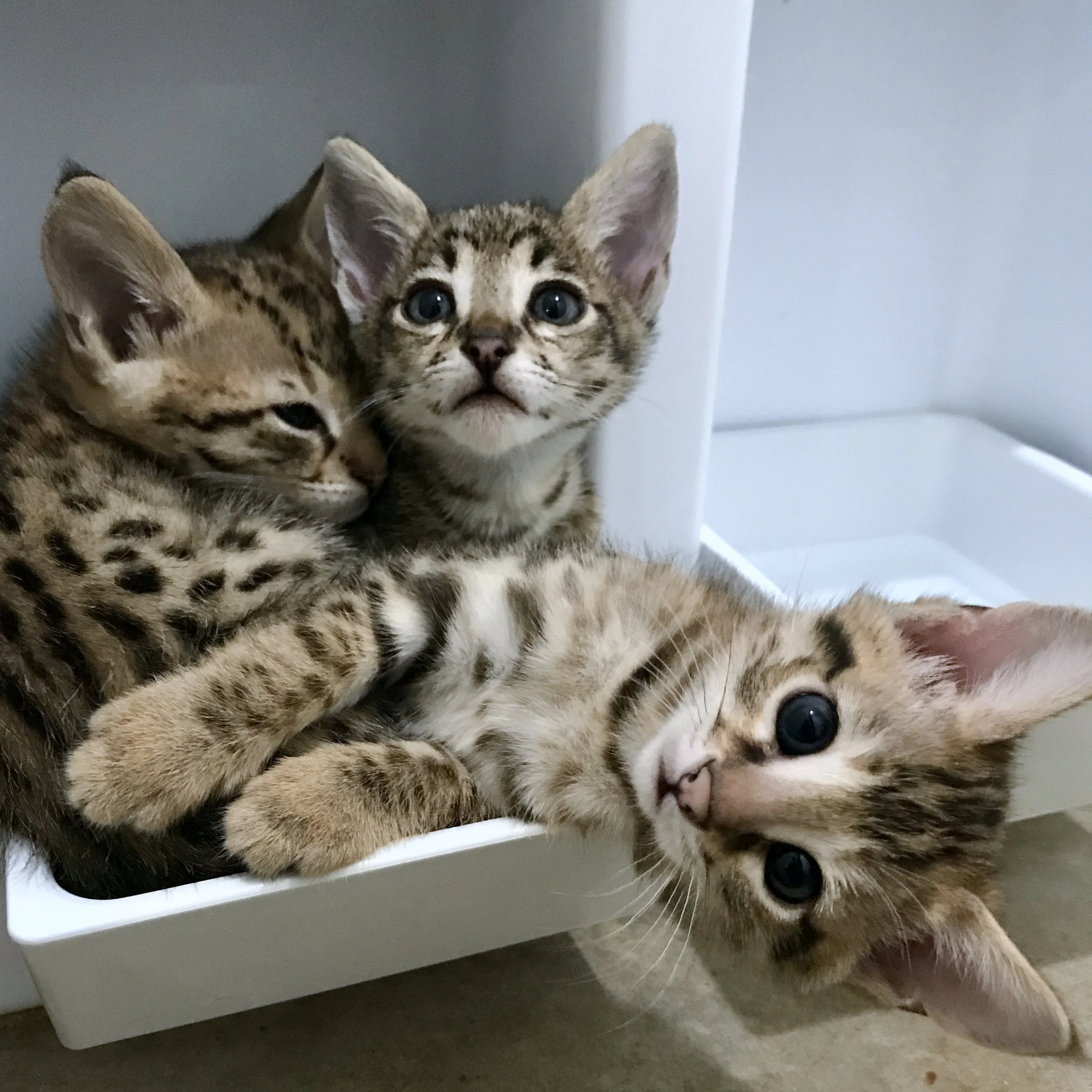Inviting an animal into your home is a big decision and a serious responsibility — but when that pet is a Savannah cat, it also means some serious benefits! Your Savannah cat may be a cute and cuddly member of the family, but he or she is also an active little creature with a big personality and a pretty big brain.
While we all know that cats are awfully intelligent creatures, some pure-bred breeds are notably smarter than their fellow felines. According to Johanna Reel, Registered Vet Tech at NHV Natural Pet, “Cat breeds that originate in Africa also tend to be quite intelligent. These include the Abyssinian and Savannah cats.” Here are a few specific traits that make the Savannah cat one of the smartest breeds around.
They’re Connected to their Wild Side
Savannah cats have a very distinct and exotic look, thanks to their close relation to the wild serval. But they may have inherited more than their looks from the African cat; Reel says that “[Savannahs] tend to be more directly linked to their wild ancestors, and perhaps are a little bit closer to independent wild cats who need intelligence on their side to survive in the world.”
The wild nature of a Savannah cat also makes them very social creatures — a wonderful quality in a lifetime companion. When you bring a Savannah into the family, you make them a part of your pride, and these little guys are very loyal to their masters. Savannahs have been known to follow their owners around the house, and even engage in some playful pranks (these cats have a great sense of humor)!
They Love to Hunt
Most domestic cats enjoy hunting (just ask every cat lover who’s found a dead bird or mouse on their back porch). However, Savannah cats are especially partial to tracking and hunting down prey. Part of this is instinctual — as we just mentioned, they are more closely related to wild cats than most domesticated breeds — but it’s also a testament to their intelligence. For Savannahs, hunting and chasing is a fun way to exercise their active brains.
Because of this love of the chase, your Savannah cat may easily become restless if they’re left alone. According to Reel, Savannahs need a lot of proper stimulation or they can become bored, which may lead to destructive behavior. Luckily, this potential problem has an easy solution: take your cat on regular walks! Savannah cats usually love walking with their owners and enjoy spending time playing outdoors, but we do not recommend taking them outside without a leash. Due to their adventurous nature, they’re likely to take off on their own.
For their time spent indoors, cat toys and special cat furniture are great ways to keep them stimulated. Consider adding cat-climbable shelving or sisal poles to your home, built here in the USA and sold at A1Savannahs Savannahs. This furniture is a fantastic way to keep cats happy and engaged inside. We also sell hand made by us Marino Wool Cat Beds that are ideal to keep you kitty warm during the winter and cool during the summer.
They’re Very Observant
Have you ever noticed your Savannah cat staring intently around the room? You might have thought he was staring into space, but it’s more likely that he was keeping tabs on everything around him. These cats are incredibly observant — likely another hangover from their wild ancestors, who had to keep an eye out for rivals or predators on the horizon.
Because of their sharp observation skills, Savannah cats can easily learn the layout of an area (which is why it’s important to make sure your house is ready for them), which helps them quickly adjust to their surroundings. In fact, the Savannah cat’s observant nature is part of the reason that they make excellent service animals! Savannah’s are more likely to notice changes in their owner’s moods, which makes them great therapy animals.
Whether you’re looking for a pet to bring you emotional support, a sharp shooter to hunt down pests, or just a beautiful animal who loves to play, Savannah cats are some of the best and brightest cats you’ll find. If you invite one of these beauties into your life, you’re guaranteed to fall in love!
This article was written for us by Aaron Smith who is a writer and copy strategist for several companies and non-profits. He often covers topics important to pet owners, and is a dedicated dog dad to his three pups. In his free time, Aaron enjoys swimming, swing dancing, and sci-fi novels.
Click on the pictures to see what kittens we currently have available and the links in the article.
Until our next cat convo











